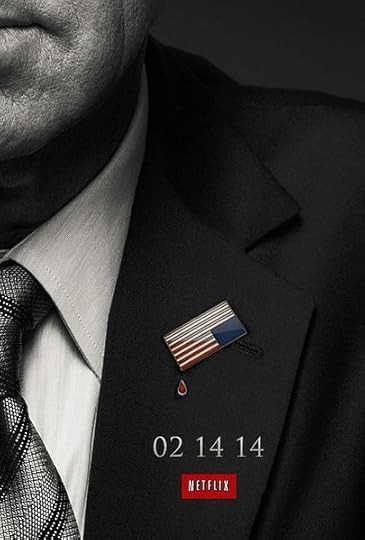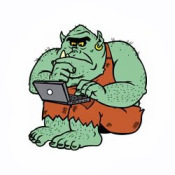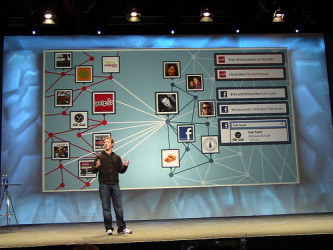Matt Moore's Blog, page 10
February 20, 2014
I’m on Graeme Brown’s blog today as the Author in the Spotlight
Grame Brown has featured me in his Author in the Spotlight: Matt Moore piece on his Fantasy Writing Journey blog. I talk about my writing method, give advice to new writers, and name-check authors David Nickle, Lydia Peever and Joel Arnold.


February 15, 2014
Why I Hated the House of Cards Season Two Premiere (no spoilers)

(There are no spoilers here, but this post assumes you have seen season one of the U.S. version of House of Cards.)
I woke up this morning expecting headlines about Amazon servers crashing as everyone rushed to watch the new season of Netflix’s mega-hit House of Cards. Since the first episode cut out on me once while trying to watch last night, I feared it would for others as well.
Luckily, things seem to be chugging along.
Which is about the only positive thing I can say about the opening episode.
Why season one worked
Season one had great moments of characters struggling with their weakness while aiming for power:
Peter Russo balancing his family, alcoholism and quest to be governor
Frank’s role in Peter’s death
Claire’s infidelity
Zoe’s confusion over if she has feelings for Frank or is using him like he’s using her
Granted, things seemed to fall off the rails in the second half of the season. (Frank playing “the alphabet game” on CNN? Come on, that was weak.) Still, there was a lot of story there to deal with.
Season two is a soap opera
Season two seems to have dropped that subtlety in favour of awful people doing awful things to each other. Frank, Claire and Doug Stamper are evil, cruel, unrepentant sociopaths. (Tiny spoiler: has Stamper trained in Krav Maga?) Meanwhile, the journalist trifecta of Zoe, Lucas and Janine spend the episode biting their nails and then screaming at each other over how powerful Frank has become. As a story outline, there is room for great drama. Instead, we got soap opera melodramatics. I didn’t care what happened to any of them. I hope there’s a 24 cross-over where the whole lot of them gets nuked, leaving only Christina (Russo’s assistant/girlfriend) for Jack Bauer to lead out of the rubble.
True, having a sociopath in the mix adds drama. Even an unrepentant asshole like Walter White (or Jack Bauer) amps up the tension. But the sociopath must be among characters we care about. And Walter White’s loyalty to Jesse and love for his family, twisted as it all became, made him sympathetic. There was none of that here. It almost seemed like the writers sat around thinking “No, we need to make ________ even more evil. We need to shock the audience! Character development and consistency? Nope. Shock the audience.”
Yeah, about “the twist”
It’s not a spoiler to say the episode has a “shocking” moment/twist/game changer. The Web is no doubt buzzing about it already.
So I’ll call it a shameless attempt to generate buzz. No spoilers here, but man is it a cheap, weak cop-out. If you watch the episode, ask yourself if that character would really take such a reckless risk. It makes no sense unless it’s an easy way for the writers to generate tension. It is as contradictory as Lori on The Walking Dead telling Rick he needs to do something about Shane because Shane is putting everyone at risk, then being horrified when Rick tells her he killed Shane in self-defense.
That’s not to say I don’t think the character is capable of the motivation, but the execution is not in keeping with what we have seen so far. Unless the second episode spends time deconstructing it from a character perspective, it spells bad news for the direction of the series. No doubt, it will affect plot but not character leaving us to think __________ is just a shell of a person who takes actions that are convenient to move the plot from A to B.
Where is Fincher?
What scares me the most is (according to Wikipedia) it looks like David Fincher is not involved this season. He remains in the credits as Executive Producer, but that’s it. Like Frank Darabont on The Walking Dead and Dan Harmon on Community, my fear is without a talented guiding hand this show will drift into the great sea of TV mediocrity.
Judging by season one’s uneven quality, House of Cards might becoming Washinton D.C.: 20510.


February 10, 2014
How You Can Help Create a Great Horror Magazine
I know you are asked to support Kickstarter, Indiegogo and iPetitions on a daily basis. Usually it’s something like “Help me do something that serves me (and only me) and it’ll be awesome (for me)!”
This is not about me. This is not my campaign. I won’t profit from this. It’s just something I believe in.
So here’s my pitch: You get to read more great short horror fiction from top authors in the field. I’m talking F. Paul Wilson, Jack Ketchum, Jonathan Maberry, Joe Hill and Clive Barker.
Who’s running the campaign?

Cover for the first issue of Jamais Vu – The Journal of Strange Among the Familiar
This Kickstarter is for the brand new horror journal Jamais Vu: The Journal of Strange Among the Familiar. It contains a mix of short fiction, poetry, reviews and opinion pieces. (Full disclosure: I have a piece in their debut issue, but have already been paid so won’t make money off this.) They pay 5 cents/word for fiction and comparable rates for other pieces.
But this Kickstarter is not to help them get up and running. They have a stable business model.
This Kickstarter is to help them attract the big name authors I mentioned above. But what’s in it for you? First, we have to understand the economics involved.
How the money will be used
Top writers command payments five or six times the 5 cents/word Jamais Vu offers. JV cannot afford that. But if they can raise just $450 between now and March 4, they will be able to approach big name writers to get stories. Those names on the cover will sell more issues, meaning more revenue to approach more authors.
What’s in it for you
For a long time, people said horror was dead. But emerging journals like Shadows & Tall Trees and Postscripts to Darkness are changing that by publishing smart, scary stories. Jamais Vu will push this further by commissioning new work from top authors. Think about it: every issue will have a story by a leading writer in horror. This will attract more authors and soon this magazine could be the place to find works by your favorite authors, plus up-and-comers, poetry, reviews, editorials and more.
And the cover price is just $6.99.
Science fiction and fantasy have their top-name print magazines. Let’s build one for horror.
Check out Jamais Vu: The Journal of Strange Among the Familiar to get a sense of what they publish. And if you dig it, please consider donating.


January 16, 2014
To Women Writers: Please Stop Tearing Down Yourselves and Your Work
The other day, my friend J.M. Frey (Triptych, The Dark Side Of The Glass) posted a quote to her Tumblr:
Girls are trained to say, ‘I wrote this, but it’s probably really stupid.’ Well, no, you wouldn’t write a novel if you thought it was really stupid. Men are much more comfortable going, ‘I wrote this book because I have a unique perspective that the world needs to hear.’ Girls are taught from the age of seven that if you get a compliment, you don’t go, ‘Thank you’, you go, ‘No, you’re insane.’
It came from a (very long) interview with Girls creator Lena Dunham did with the Guardian. This post is not about the show or Dunham, but the phenomenon of women writers minimizing or diminishing their work. I had a personal experience with this (below) which made me sensitive to it. And while not unique to women, now that I am senstive to it I find female writers, more than male, are more likely to diminish, degrade or reduce their work.
It needs to stop. You are not being modest or humble, but lying to yourself and others.
Diminishing your accomplishments is not modesty, it’s destructive
I believe humility and modesty are virtues. (NOTE: I am not talking about women dressing modestly, being demure, deferring to men or any of that sexist bullshit. I am talking about everyone.) Without them, it can be very easy to lose perspective, even with moderate success, and feel you can play by different rules—dominate a panel, demand a book signing slot, not arrive on time, etc. In the creative field, rarely is such behaviour tolerated. Even major celebrities can incur tremendous backlash. Consider John Lennon’s “We’re more popular than Jesus” comment in 1966.
Modesty keeps one grounded and connected with fans, who are the reason we are successful. It also reminds us that there is always room for improvement. It brings things from an exaggeration down to a reasonable level. A statement of “Oh my God, this is the best book ever written!” met by “Thanks, I’m really proud of it and glad you enjoyed it” allows the author to remain humble while still thanking and acknowledging the fan.
What I hear some women authors saying isn’t humility. Saying a story is “silly” or probably won’t win the contest it’s been submitted to is not being modest or reasonable, but unreasonable since it is a reduction into the negative.
Or worse, having someone tell you that your story is amazing and you reply “Well, it’s not really that good” is invalidating the other person’s opinion. They gave you a huge compliment and then you told them they were wrong. The other person won’t think you’re humble, but a jerk.
Why I’ll never be mistaken for a former jock
I’ve never been a 7 year old girl, so can’t comment on Dunham’s statement on the training they receive about receiving compliments, but men still tend to be judged by their individualism while women are judged by their collectivism. Consider the dissection of Marissa Mayer’s decisions as president of Yahoo!; instead of being the boss (positive masculine trait), she’s bossy (negative feminine trait). Or, watch the video below by Pantene targeted to the Philipines.
Could it be that women don’t want to be seen as “the bitch” who brags about her work? Does this comes from geek psychology?
While the bullying that most of us geeks—both men and women—endured involved name calling and threats, male bullying tends to carry the threat of physical violence while female bullying is more social, such as spreading false rumours and excluding from the group, which are often started by a “queen bee” alpha female.
For men, we generally outgrow the physical threat of bullying, but for women the threat of social exclusion persists into adulthood. And just as we male geeks can’t stand the 40-something ex-jock who’s got the same mentality as our grammar school bully, female geeks can’t stand the “queen bee”s in their social circles, office or gym.
Where the difference happens is that while no one will confuse me for an Alpha Male Former Jock, a female geek might worry she is voicing too many pointed opinions or thinks others feel she is elevating herself above the group, which might lead to her being labelled “a bitch.” For either gender, to be equated with one’s former tormentors in a group that prizes its sense of community is horrific. So perhaps when facing a huge compliment, a woman fears being seen as the “queen bee” she hated in high school and tries to counter the compliment.
Don’t go dark; just say “Thank you”
Both male and female authors fall into this pattern of mistaking self-degradation for modesty. Sometimes it comes from honestly not knowing how to take a compliment. Sometimes it comes from someplace much darker.
I wasn’t raised with the best social graces, so when I started having some success and receiving compliments, I didn’t know how to reply since I rarely had to deal with them before. Rather than being flattered, I was embarrassed by the attention. And I immediately replied with everything negative about what was being praised.
Part of this came from my artistic desire for perfection, but some of it came from self-doubt and self-loathing. Like a lot of creative types, I internalized a lot of negatives things said about me. So when someone told me they loved my story, a voice in my head coming from 30 years back said: “Don’t they know I’m stupid, worthless and going to fail?”
It took a lot of work, but I learned to just reply “Thank you” to a compliment. There is nothing immodest about it. Learning from others, when someone said something extravagant I’d reply with a reasonable statement:
“Glad you liked it.”
“I’m proud of the story.”
“I always wanted to explore a world like that.”
“I’m writing something similar right now.”
At the risk of telling you what to do: don’t ever diminish your work, your effort or your accomplishments. If you hear the voice in your head wanting to run you down, don’t let it. It’s not you. Artists tend to be overly sensitive and that voice is all the negative crap said about you, which you have defied. Just say “Thank you” or use one of the lines above. The people who didn’t understand your art—or, more likely, were jealous of it—do not matter. Stop the destructive cycle going on in your head. Please.
If you hear someone doing this, call them on it. Be respectful, but break that cycle. Point out the facts, praise them and see if you can get them to see where that bullshit attitude of “Oh, I’m not really that good” came from.
Because here it is folks: If you’ve finished a story, that’s not just good enough, it’s amazing. It is creating something from nothing. You might say there are plenty of other writers, which is true, but none of them are you and none of them have written your story. And there are plenty of others out there who wish they could do what you have done.
Before there were cities, specialized labour, organized religion or even the written language, there were storytellers. They made sense of the world. We satisfy the humans need for the make-believe.
Any time you begin to think you are silly, not good enough or going to end up failing, remember that you are part of this ancient tradition that stretches back millennia. You matter.
Coda: A personal story
Several years ago at a convention, I was on a panel and a woman in the audience asked a question. I don’t recall the panel topic or the question, but clearly recall her introduction. “I write these… silly little stories and…” I replied to her question, but then zeroed in on her use of the word “silly.” From her body language and tone of voice, I could tell it came from a place of insecurity.
Trying not to be paternalistic, but speaking as panelist to attendee, I asked her if she had finished and submitted her stories. She told me she had finished them, but didn’t think they were good enough to submit. We also spoke after the panel so I can’t recall what I said during the panel and what we discussed after, but I told her she was in a special minority since most “writers” make excuses rather than finish their work. Any artistic effort completed by the artist is never silly. She had created something out of nothing and she didn’t know if there was someone in the world who would be a better person having read her story. Why hold back her story from that person who needs it? And she should let publishers and editors decide if her work was worth publishing. She teared up as we spoke and I fell like an ass for it, but some time later I saw her and asked how she was. She indicated she was still writing, taking it seriously, and submitting her work.


January 6, 2014
Was I Right that Something Would Change in Social Media During 2013?
In September 2012, I blogged about how some still view social media as a fad and predicted that there would be a fundamental change in 2013. My main assertion was that social media had matured to the point the Web did in 2000—being cool is no longer enough; it’s time to make money.
2013 saw stories (and controversies) about Twitter advertising, Facebook wanting to run auto-playing videos in your timeline and Twitter’s IPO. But I think the key thing that changed was Google’s über-integration of Google+ into everything, but mainly YouTube. And, their decision to kill Google Reader. These two decisions show Google is on the road from simply being cool to figuring out how to make money.
One social media site to rule them all

Google has put a lot of eggs into its Google+ basket, meaning they view it as a key money maker
YouTube remained its own brand long after Google acquired it. And while integration of its login accounts into the Googleverse caused some confusion (e.g., I had Google accounts for two email addresses—one for private, personal stuff; one for my more public persona—and somehow lost the use of a custom URL for one of them), YouTube by-and-large remained its own universe.
At the same time, Google+ endured plenty of criticism when it launched, forcing anyone with a Google service—GMail, Google Docs Drive, Google Alerts—to have a Google+ account. This artificially inflated their number of users.

Please don’t feed the trolls, but their horrific grammar and spelling on YouTube is quite amusing.
But their decision to scrap YouTube comments in favour of a Google+ system will be seen—for good or ill—as a tipping point. Almost as if this decision was made to force users to become active on Google+. (I know they say it is to improve comments on YouTube, but come on. The YouTube trolls are part of the charm!)
(Addendum: It also seems that Blogger’s comments have also been replaced by Google+. I am not sure when this happened since it’s been a while since I’ve been on a Blogspot-hosted blog, but it’s the same move as YouTube—if you want to participate, you must be on Google+.)
Without a doubt, Google+ is the basket with a lot of eggs in it. One only need look at the death of Google Reader. Like a lot of you, I used Google Reader and loved it. So why did it die? According to Buzzfeed, Google+ was the company’s top priority and none of its senior people wanted to run a second-tier product for fear of not basking in the glory of Google+.
For a company as large as Google, this focus on one product can only mean it is seen as its main money maker.
Get ready for Google+ ads
The reason for this change is not to stick a finger in Facebook’s eye. It’s about gaining an even deeper knowledge about us in order to serve ads better suited to our tastes. As a business, Google needs to make profits and better ads means more revenue. I do not begrudge them that. However, just as we have Facebook ads in our timeline, it is only a matter of time before we have ads and promoted posts on Google+ (in addition to the ads on the search results page we have grown used to). Google+ has already been softening us up with the “What’s Hot and Recommended” posts.
What’s more, could this also be a harbinger of the death of YouTube (or Blogger) as its own entity? YouTube has undergone some substantial changes with the launch of its “One Channel” in early 2013. One wonders if this new layout is the first of a few gradual steps to shut down the YouTube brand and re-launch Google Videos.
And think about it from the advertiser’s perspective. It would be much simpler to run a campaign across all Google platforms rather than having to manage AdWords in one interface and YouTube advertisements in another.
What about Facebook?

Mark Z has got something he wants to tell you… er… and it looks complicated.
It’s ironic that as Google—who got started in search—is making a full court press into social media, Facebook launched Open Graph, its advanced search tool. By all accounts it was a flop, but Zuckerberg is nothing if not iterative. I have no doubt Open Graph is being tweaked behind the scenes and, when ready, rolled out again.
On the other hand, reports have come out that the organic reach of Facebook pages is being intentionally diminished in favour of promoted posts. Again, this makes sense in that Pages were set up so that businesses could have a precense on Facebook and business have traditionally paid for advertising. But this is a bit of a betrayal. Brand Pages could purchase advertisements, but a number of brands grew their reach through posting cool content and interacting with fans. You know, being social. Now it seems all of that was wasted effort.
What will happen to social media in 2014?
Unfortunately, we’re seeing the migration from meritocracy to those with the most bucks getting the most space. Now, this is capitalism and it has always been this way. (I doubt we will see too many mom-and-pop stores advertising during the Superbowl.) But it also means the end of “cool” online. The social media space has reached the point where it needs to make a profit to be self-sustaining. All those servers with all those cat videos won’t pay for themselves.
By the end of 2014, you won’t be able to watch anything on YouTube without sitting through an ad. (I know, it already seems that way.) Like we see on Tumblr, paid posts will show up in your Google+ feed. And I have to believe that Facebook won’t just serve ads in the right side of the page and promoted posts in your timeline, but will offer a service for ads to show up as notifications (the numbers coming out of the globe in the top right). Think about it: the circle appears with a “1″ in it, but it’s telling you “Because you liked this page, you should like that page” or “Because you liked this post, Brand X is offering a 20% discount if you act in the next 10 minutes.”
To put this all another way, social media is going to look a lot like TV by the end of this year. Except these TV stations will know virtually everything about you.


January 2, 2014
2013 Year in Review
I’ll remember 2013 as a great year.
Although I only had one fiction publication (the small town horror story “The Leaving” in Blood Bound Books’ Blood Rites), I made 25 submissions and had 4 acceptances, all of which will appear next year. In addition, my op-ed on (sub)urban fantasy appeared in the Spring edition of On Spec.
I was also nominated for an Aurora Award in the short story category for “Delta Pi” from Torn Realities (Post Mortem Press).
In April, I launched the Ottawa branch of the Chiaroscuro Reading Series, the first off-shoot of the Aurora Award winning professional reading series stared in Toronto. Charles de Lint was my headliner, followed by Tanya Huff in July. Speaking of Toronto, I read at the Toronto ChiSeries in September. (Watch videos of my readings.)
For conventions, I attended and participated in Ad Astra in April, the World Horror Convention in June, Can-Con in October and SFContario in November. I highlight of Can-Can was getting to represent Can-Con and Ottawa in presenting the Aurora Award in the Best Graphic Novel category.
I also attended Ottawa Comiccon (May) and Ottawa Pop Expo (December), though I did not do programming there.
And I launched my short story collection Touch the Sky, Embrace the Dark.
Looking ahead to 2014
Preparing and promoting both the Ottawa ChiSeries and Touch the Sky, Embrace the Dark took a lot of time. I also received some bad news in my personal life in 2013 that zapped a lot of my energy.
To be honest, my writing in 2013 was probably my weakest in years. I did not produce as much as I wanted and it was not at the quality I need to be producing now. All of my sales were of pieces I had written early, they just happend to sell in 2013.
So in 2014, here’s my plans:
Watch less TV. I don’t watch a lot, but have a habit of turning on the TV when I am folding laundry or eating a meal. I will stop since it sometimes sucks me in or, at the least, distracts me. It’s time for that to stop.
Get excited about writing again. I think I became a bit burned out by actually writing in 2013. I felt more pressure to revise, submit and promote than actually write. That needs to change. I need to love the stories I am telling more than finally getting them out to market.
Be more overtly genre. A lot of what I have written in the last two years has been very heavy on character at the expense of the plot one expects in genre fiction. While I strongly believe genre fiction can be literary, a literary story with a barely-there speculative element will have a hard time selling in either genre or literary markets. My thinking had been “I’d rather the horror be subtle and let the character’s story carry you through.” I now see the character’s story can carry the reader, but the horror can also be in your face.
Run workshops. I ran some workshops two years ago, but have not gotten back to it. I enjoyed the experience of helping other writers and hope I can organize a few this year to support ChiSeries and Can-Con.


December 20, 2013
Interview and Guest Post on Ginger Nuts of Horror
Jim McLeod was gracious enough to post two pieces on his Ginger Nuts of Horror website.
The first is a five-minute interview where I talk about my writing style, my writing habits, and why I’d pick fame over fortune.
The guest post talks about the title of my short story collection Touch the Sky, Embrace the Dark. To summarize, the two components of the title each reflect the reality of human nature. “Touch the Sky” is our desire to strive to be better, but “Embrace the Dark” reminds us to remember we are only human and sometimes our humanity has a component of darkness.
My hat is off to Jim for giving me some time and exposure on his site!


December 18, 2013
Two Readings from TOUCH THE SKY, EMBRACE THE DARK
It’s been a while since I have posted here and the holidays has left me little time to blog, so here’s two things I have not posted yet.
Back in September, I read at the Toronto ChiSeries. It was my first time doing a reading before such a large audience and I apologize if I read a little too fast. Someone in the audience was nice enough to record me reading two stories: “The Wall of Hands” and the Aurora Award-nominated “Delta Pi”. The videos are below:
The Wall of Gloves
Delta Pi
Both of these stories appeared in my short story collection Touch the Sky, Embrace the Dark.


November 28, 2013
SFContario Schedule
This weekend, November 29-December 1 I will be at SFContario in Toronto. My schedule is below. When I’m not paneling, looking for me at the ChiZine Publications‘ dealer table.
Saturday
10AM: As you wiiiiiiish
Solarium
David Clink, Matt Moore, Cliff Goldstein
Noon: Giving Good Read
Solarium
Matt Moore, Allan Weiss, Leah Bobet, Richard Unger
4PM: Politics And Horror
Gardenview
David Nickle, Matt Moore, Adam Shaftoe, Sandra Kasturi
5PM: Agents of S.H.I.E.L.D
Solarium
Diane Lacey (M),Matt Moore, David Clink, Alex Von Thorn
Sunday
12:30PM: Reading
Gardenview
I’ll be reading samples from my collection Touch The Sky, Embrace the Dark
2:00PM: It’s The End of the World As We Know It
Ballroom BC
Seanan McGuire, Matt Moore, Peter Halasz, (M) Tony Pi, Doug Smith


November 26, 2013
Touch the Sky, Embrace the Dark: Why I Wrote… (Part 2)
Every story has a story behind it. So to give you a small glimpse into the stories in Touch the Sky, Embrace the Dark here are the influences, the ideas or the inspirations for each of these stories. I hope by learning a little more about them you’ll appreciate them even more.
Yesterday I wrote about the inspirations of the first five stories in Touch the Sky, Embrace the Dark. Here are the stories behind the last five stories in the collection.
In the Shadow of Scythe
What if Al Gore or David Suzuki were the Anti-Christ? What if a man like them used radical environmentalism to attract devoted, unquestioning followers? With the planet’s biosphere at stake, the ends justifying the means would be a simple justification for totalitarianism.
This idea led very quickly to a near-future story heavy on thriller and espionage elements.
The Wall of Gloves
I ride the bus. During the winter, it’s quite common to find a single glove on a seat. This led me to think about someone who collects these gloves, which led to an image of them hammered to the wall of a barn.
The imagery after that became pretty gruesome.
While Gabriel Slept
I do not have children and do not believe in God as defined by religion. Wanting a challenge, I put myself in the role of a religious man with a new baby. Then made things go wrong.
Since I love contrasts, I wanted to make this character do (or, perhaps, merely contemplate) horrific things for the most loving, selfless of reasons. Or to put it another way, when even God has turned His back on you, can any of your actions be considered moral or immoral?
The Weak Son
I wanted to tell an original ghost story. I started thinking: what if a ghost can’t act unless it has some connection to the people nearby?
This all spilled into the idea that a ghost can only remember its life through others’ memories. But in remembering, the ghost can influence those others’ memories in turn. Without those people it knew in life nearby, a ghost is no longer self-aware.
Quickly, this became a mystery where a ghost has to determine the circumstances of its own death.
Touch the Sky, They Say
The original idea was a literal glass ceiling above the offices of women who could advance no further, but could see what was happening above them.
One bus ride later, the glass ceiling became a grey sky that had fallen, cutting us off from the sky, the stars, the sun. Between getting off my bus and walking home, this grey, new world was one where hope, passion and determination were dying.
This was the first story I had written since my mother had died and the emotions I was feeling gave it its emotional weight—the feelings of giving up, hopelessness, loss. But also the need to keep moving ahead and get on with life.
I talk about this story in detail in a post titled (appropriately enough) “Why I wrote ‘Touch the Sky, They Say‘”






